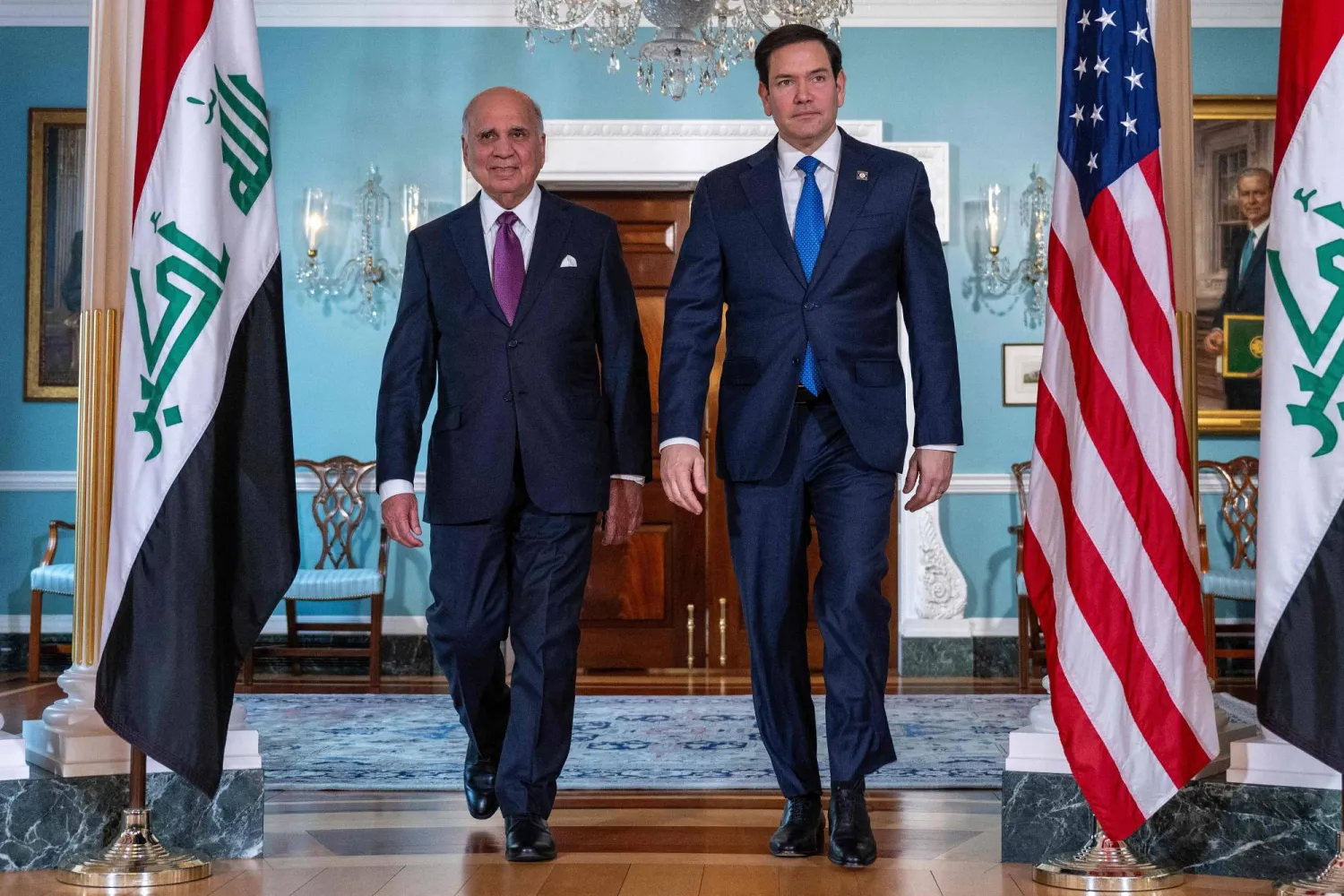Politics
Washington Pushes for a Stronger, Independent Iraq Amid Talks on Energy and Security

The United States has reiterated its support for a strong, stable Iraq, emphasizing the importance of a country “free from malign influence.” The U.S. administration made these comments on Saturday, as Iraqi officials outlined steps to reduce the country’s dependence on Iranian gas.
U.S.-Iraq Talks Focus on Cooperation and Energy Independence
On Friday, Iraqi Foreign Minister Fuad Hussein met with U.S. Secretary of State Marco Rubio in Washington to discuss political, security, and economic cooperation between the two nations. A key point of discussion was Iraq’s reliance on Iranian gas, a topic that has dominated recent diplomatic talks.
This meeting marks the first high-level exchange between senior Iraqi officials and the U.S. government since the inauguration of U.S. President Donald Trump in January 2025. The talks highlighted Iraq’s ongoing efforts to secure a more stable and diversified energy supply, particularly in light of U.S. sanctions on Iran.
Strengthening Bilateral Relations
According to the Iraqi Foreign Ministry, Secretary Rubio and Minister Hussein focused on strengthening bilateral ties, particularly in the areas of counterterrorism and security. The U.S. government reiterated its commitment to supporting Iraq’s stability and commended the country’s efforts in combating ISIS.
Iraqi politicians have expressed concern that U.S. sanctions on Iran might impact Iraqi businesses and institutions. However, the Iraqi government insists that it has worked hard to maintain a neutral stance in regional conflicts, which it believes has helped improve its relations with Washington.
Steps Toward Energy Independence
In his remarks following the meeting, Minister Hussein emphasized Iraq’s commitment to energy diversification. “Iraq has begun taking concrete steps to reduce its reliance on imported gas,” he said. Hussein outlined plans to achieve energy self-sufficiency within the next few years, aiming to decrease the country’s dependence on Iranian energy sources.
This move comes after the U.S. withdrew a key waiver in March, which had allowed Iraq to continue importing electricity from Iran. The withdrawal is part of the U.S. government’s “maximum pressure” campaign on Iran, designed to curb Tehran’s nuclear and military ambitions.
Despite these challenges, the Iraqi government has worked to assure the U.S. that finding alternatives to Iranian gas will take time. Hussein’s comments reflect a continued effort to build a more self-sufficient energy sector.
Security Concerns and Regional Stability
On the security front, Minister Hussein raised concerns about U.S. travel advisories, which he said negatively affect the entry of U.S. companies into Iraq. He highlighted the improved security situation in the country, suggesting that Iraq is now better positioned to attract foreign investment.
The two officials also discussed the ongoing threats posed by ISIS. Hussein specifically urged caution regarding the prisons controlled by the Syrian Democratic Forces (SDF), where around 10,000 ISIS fighters are held. The Iraqi government has voiced concerns about the potential security risks posed by these prisoners.
The discussions also touched on the situation in neighboring Syria. Hussein emphasized the importance of a political process that respects the rights of all Syrian communities and contributes to regional stability. He noted that a stable Syria is crucial for Iraq’s own security and peace.
A Strong, Sovereign Iraq for Regional Stability
For his part, Secretary Rubio stressed the importance of a strong and sovereign Iraq that is free from external influence. He said that a strong, stable, and sovereign Iraq is vital to regional stability and the preservation of U.S. interests.
The U.S. State Department spokesperson, Tammy Bruce, confirmed that Foreign Minister Hussein would meet with other senior U.S. officials during his visit to Washington. Bruce said that Minister Hussein will be at the State Department for various meetings.
Iraqi Economic Reforms and International Support
In addition to talks on energy and security, Iraq’s Finance Minister Taif Sami and Central Bank Governor Ali Al-Alaq also held discussions with senior officials from the World Bank and the International Monetary Fund (IMF). These talks, which took place during the Spring Meetings in Washington, focused on Iraq’s economic challenges and the role of international institutions in supporting the country’s reform efforts.
The Iraqi government highlighted its ongoing efforts to reduce spending, increase revenue, and accelerate infrastructure projects. The World Bank has been working closely with Iraq to help drive digitalization and modernize key sectors, including energy and the environment.






